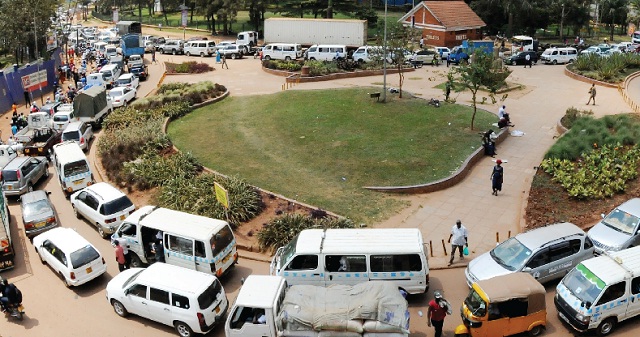
COMMENT | Henry Mutebe | Traffic jam is a security threat, an economic problem and a social evil. Someone in Ministry of transport and works, KCCA, National Roads Authority and other line ministries should be thinking very seriously about this issue.
HERE IS WHY……….
I do not know what the planners of Kampala are doing, but one day, one time, this town will come to a standstill. The congestion on the roads and poor traffic management and control has far reaching consequences on the productivity of people but also cuts deep into their pockets.
At an individual level, it doesn’t seem to make sense but lets fly above the individual and take an aerial view of this problem. Apparently, by around 2016, we had over 500,000 cars in the country. Every month, the Uganda revenue authority clears anywhere between 1000-2000 ‘new’ cars that join the Ugandan roads.
Let’s look at Kampala. Kampala City council authority collects 120,000UGX from Taxis (Matutus or minibus). This money comes to about 1.5 billion every month. This means there about 12,500 ‘taxis’ or matutus oscillating in and or around Kampala.
Kampala is the administrative and business center of Uganda. It is also the connecting point between the west and east, north and south. Kampala is estimated to be having a day population of 2.5 million people and a night population of about 1.5 million. This means that one million people are making a return journey to Kampala on a daily basis. They come in during the day and leave in the evening or night. These people are using the 12,500 taxis and thousands of other cars.
Taking a conservative estimate, most prices to and from Kampala range between 500-3000shs. If we maintain that conservative estimate – and say on average, every one, of the 1 million people that come and leave Kampala every day, uses 700shs per trip, this would mean each of the 1 million people uses about 1,500shs every day in transport. This means that the transport industry makes about 1.5 billion every day. However, of that money made by the transport industry, there is a very huge chunk that is being wasted or burnt to waste due to the daily traffic Jam.
Let’s take another estimate. Most taxis make more than 10 trips in and around Kampala. We know that traffic jam is mostly dense in the morning and rush hours between 5- 8pm. The evening jam is too severe that some cars spend in excess of two hours stuck on the road. However, for purposes of getting an impression of the problem, let’s redistribute that time and simply get an average. Assuming, that each taxi that comes or leaves the city spends about 15 minutes in traffic jam for every trip, after 10 trips, it would mean each taxi has spent 2.5 hours in Jam, every single day.
Consider that we have about 12,500 taxis on the road, each spending 2.5 hours of each day in Jam. An average car, let’s assume it has a displacement of 1.8cc, would consume about 1 liter of fuel per hour while idling. If the car is blasting AC, and the oil is cold, and or the car is old (which is the case for most cars in kampala), the fuel consumption is even higher. Since most of the cars are old with some functions no longer working, few of them are able to switch off fuel supply to some cylinders when the car is idling or in traffic jam.
So you have 12,500 taxis, spending about 2.5 hrs each, in traffic jam, consuming fuel but not moving. It would mean each taxi wastes or fires 2.5 ltrs of fuel in traffic Jam alone during those 2.5hrs. This fuel is simply wasted since the car is either at standstill or moving at snail pace. So if you multiply the 2.5 lrs of fuel wasted by each car in jam, with fuel going for 4000shs at the pump, you arrive at 10,000shs for each car-each day
This means each taxi wastes 10,000shs in fuel spent in traffic jam alone. If you have 12,500 taxis, this means we are wasting 125 million every single day because of the heavy jam. This means that every month, we waste 2.5 billion (if you consider just 20 days in a month, discounting Saturdays and Sundays). This figure does not include the money wasted in fuel by other cars.
 The Independent Uganda: You get the Truth we Pay the Price
The Independent Uganda: You get the Truth we Pay the Price




great reality
the research is very good .. Nice job